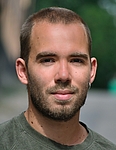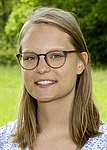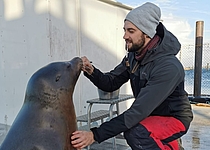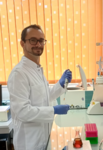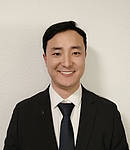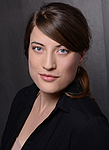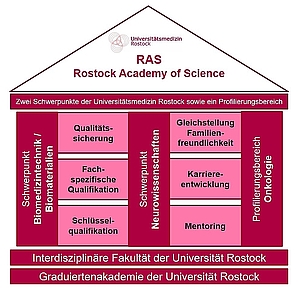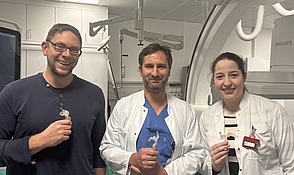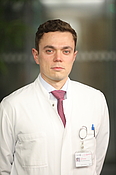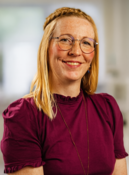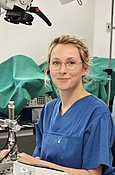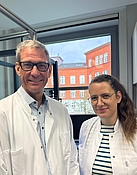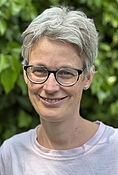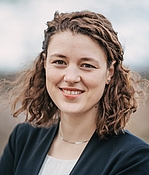Career & Funding
CTNR Young Neuroscientist Programme
The CTNR Young Neuroscientist Programme includes the financial support of early career scientists in theoretical, preclinical, clinical or non-medical subjects with a neuroscientific focus (preferably related to HealthTechMedicine — Neurosciences). The proposed project should contribute to the strategic aims of the CTNR: the expansion of existing or new local national or international cooperation by the initiation of cooperative research projects.
Deadline next call: Closed
Proposals and Apendences have to be submitted in a PDF document to ctnr{bei}med.uni-rostock.de
CTNR-funded projects:
Linking Narcissistic Traits with Momentary Aggression, Interpersonal Behavior, and Physiological Reactivity in Clinical and Non-clinical Samples: An Ecological Momentary Assessment Study
Philipp Wülfing
04/2026 - 04/2027
My name is Philipp Wülfing, and I am a psychologist and resident in the Department of Psychosomatic Medicine and Psychotherapy at the University Medical Center Rostock. My research focuses on personality disorders, particularly borderline and narcissistic personality disorder, with a specific interest in interpersonal functioning, drawing on phenomenological and psychodynamic perspectives, including developmental and attachment-based approaches. The CTNR-funded project investigates how different forms of narcissistic personality traits relate to interpersonal difficulties and aggressive reactions in daily life. Using Ecological Momentary Assessment (EMA), participants repeatedly report on their social interactions, momentary affect, and interpersonal behavior across ten days, allowing psychological processes to be studied as they unfold in real-world contexts rather than in laboratory settings. The study includes both clinical and non-clinical participants. A pilot subsample additionally undergoes smartwatch-based psychophysiological monitoring to explore the feasibility and added value of integrating physiological stress markers into EMA research and to prepare a subsequent third-party grant proposal.
Mentor:
- Prof. Dr. med. Carsten Spitzer, Department of Psychosomatic Medicine and Psychotherapy, University Medical Center Rostock
- Prof. Dr.-Ing. Thomas Kirste, Faculty of Computer Science and Electrical Engineering, University of Rostock
When (deep brain) stimulation fails: Can noradrenaline take the lead?
Meike Statz
01/2026 - 01/2027
I am a Research Associate in the Department of Neurology, where I started my PhD within the Collaborative Research Centre 1270 ELAINE. My work focuses on mechanisms underlying deep brain stimulation (DBS) in preclinical rat models of Parkinson's disease (PD), particularly its effects on motor symptoms. So far, I analyzed DBS effects on gait impairment in different PD models and quantified alterations in neurotransmitter availability as well as in growth factor expression in various brain regions. In close collaboration with the Institute of Applied Microelectronics and Data Technology (Prof. C. Haubelt) and the Institute of Communications Engineering (Prof. S. Spors) at the University of Rostock, I used accelerometer measurements to distinguish healthy from diseased animals.
With the support of the CTNR Young Neuroscientist Programme, I will now be able to finalize my thesis by investigating the impact of DBS on catecholaminergic signaling and its contribution to gait impairment in PD. To investigate these mechanisms, a transgenic rat model characterized by α-synuclein overexpression is employed, along with long-term DBS, pharmacological modulation with atomoxetine, automated gait analysis, accelerometry-based motor monitoring, and neurochemical analysis.
Supervisor:
- Prof. Dr. med. Alexander Storch, Department of Neurology, University Medical Center Rostock
- Prof. Dr.-Ing. Christian Haubelt, Institute of Applied Microelectronics and Data Technology, University of Rostock
Neuronal correlates of sensory perception in harbor seals
Dr. Kenneth Sørensen
09/2024 - 02/2025 & 04/2025-09/2025
I am originally from Denmark but moved to Rostock in 2021 after completing my PhD in Biology. Currently, I am based at the Marine Science Center in Rostock, with the Neuroethology group of Prof. Dr. Frederike D. Hanke. Here, we are establishing methods to non-invasively study the brain of harbor seals via fMRI and EEG. I am particularly interested in where and how visual information is processed in the harbor seal brain, while also documenting the learning processes during the acquisition of visual tasks.
Mentor:
- Prof. Dr. Frederike Diana Hanke, Institute of Biosciences, Marine Science Center, University of Rostock
- Dr. rer. hum. Christoph Berger, Department of Psychiatry, Neurology, Psychosomatics, and Psychotherapy in Childhood and Adolescence, University Medical Centre Rostock
Noradrenaline as a modulator of adult neurogenesis
Dr. rer. hum. Franz Markert
09/2024 - 08/2025
My name is Franz Markert and I am researching neurogenesis in the Department of Neurology. After completing my PhD in 2023, thanks to the CTNR I now have the great opportunity to expand the knowledge of adult neurogenesis. For this, I am particularly interested in noradrenaline as a regulator of adult stem cells which are located in the Subventricular zone, Dentate gyrus and along the ventricles of the brain. The project focuses on the activation of these cells by manipulating noradrenaline levels in an established in vivo model and thus provide fundamental insights into endogenous tissue regeneration.
Mentor:
- Prof. Dr. med. Alexander Storch, Department of Neurology, University Medical Center Rostock
- Prof. Dr. med. Dr. rer. nat. Markus Kipp, Institute for Anatomy, University Medical Center Rostock
The functional role of Argonaute2 in excitatory neurons during brain development
Yunxiao Li
10/2024 - 10/2025
My name is Yunxiao Li, I am a scientist working in the Molekulare Neurobiologie group at the Sektion für Translationale Neurodegeneration "Albrecht Kossel". After I joined the Molekulare Neurobiologie group as a PhD student, I applied the in vivo Ago2-floxed mouse model to study the functional role of Ago2 during brain development. With the support of the CTNR Young Neuro Scientist Program, our project will focus on combining the in vivo mouse model and in vitro cell culture system to investigate the mechanisms of Ago2-induced brain development defects.
Supervisior:
- PD Dr. Jiankai Luo, Translational Neurodegeneration Section "Albrecht Kossel", Department of Neurology, University Medicine Rostock
- Prof. Dr. Dr. Andreas Hermann, Translational Neurodegeneration Section "Albrecht Kossel", Department of Neurology, University Medicine Rostock
The longstanding scars of psychosocial deprivation in infancy– stress-associated biomarkers in former Wochenkrippenkinder (children in day and night nursery care)
Eva Flemming
11/2024 - 10/2025
My name is Eva Flemming, and I am a psychologist and research assistant at the Clinic for Psychosomatic Medicine and Psychotherapy, where I am also pursuing my PhD. With the support of CTNR, I plan to investigate the long-term effects of psychosocial neglect in infancy, focusing on HPA axis functioning, mental health, and adult attachment. Our study will measure hair cortisol concentrations (HCC) and other stress-related biomarkers in a sample of former "Wochenkrippenkinder"—individuals who experienced day and night nursery care in the German Democratic Republic during their early years.
Supervisior:
- Prof. Carsten Spitzer Department of Psychosomatic Medicine and Psychotherapy, University Medical Center Rostock
- Prof. Michael Kölch, Department of Psychiatry, Neurology, Psychosomatics, and Psychotherapy in Childhood and Adolescence, University Medical Center Rostock
CTNR Clinician Scientist Programme in Neurosciences
The CTNR offers two Clinician Scientist positions in the Neurosciences for the research protected time of two years within the specialist/subspecialist training time to conduct a theoretical research project in the field of Neurosciences. The programme consists of an individual clinical, scientific and soft skill educational curriculum and runs under the regulation of the Rostock Academy of Science (RAS, see below).
Call: closed
- Application Guideline
- Template Project Description
- Template CV
CTNR Neuro Clinician Scientists
2024 - 2025
Dr. med. Alexandra V. Jürs
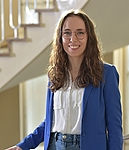
The impact of nucleocytoplasmic transport dysfunction on aging and neurodegeneration
Dr. Alexandra V. Juers begins her clinician scientist in the group of Andreas Hermann at the Translational Neurodegeneration Section “Albrecht Kossel” in the Department of Neurology of the University Medical Center Rostock. Her current research focuses on the nucleocytoplasmic transport in aging and in neurodegenerative diseases such as ALS. A disturbed regulation and distribution of specific proteins critical for the proper nucleocytoplasmic shuttling of proteins could be observed similarly in affected ALS-diseased fibroblasts, but also in fibroblasts from aged donors. This could lead to a subsequent cellular damage and thus contributing to neurodegeneration. To correlate the damaged components of the nucleocytoplasmic transport with the cellular aging, Dr. Jürs uses the AgeScore, which is composed of various aging markers. In addition to fibroblasts of different aging models and diseased donors, iPSC-derived spinal motoneurons will be examined. This project aims to better understand how aging itself and/or neurodegenerative mechanisms of different ALS types are involved in the disrupted nucleocytoplasmic transport and whether general or individualized therapeutic approaches could positively affect nucleocytoplasmic transport deficiency to treat neurodegeneration and aging.
Clinical mentor: Prof. Dr. med. Alexander Storch (Department of Neurology)
Scientific mentor: Prof. Dr. med. Andreas Hermann (Translational Neurodegeneration Section „Albrecht Kossel“)
2024 - 2025
Dr. med. Hannes Kaddatz
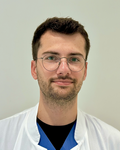
Sphingosine-1-phosphate-receptor modulation
The primary focus of our current research is on oligodendrocyte pathologies, the sphingosine-1-phosphate receptor (S1PR) system, and how this system is modulated by established pharmaceuticals, particularly Siponimod. We hypothesize that in diseases like multiple sclerosis, central cytoprotective effects of S1PR modulators, such as Siponimod, are mainly mediated through agonistic interactions with the S1PR5 receptor subtype. Oligodendrocytes, which express this receptor subtype at high levels, may be protected from cellular stress, degeneration, and demyelination as a result. Our central animal model for this research is the cuprizone model, which allows us to study pronounced oligodendrogliopathy, subsequent demyelination, glial cell activation, and immune cell recruitment in a non-autoimmune context. We use clinically established drugs (e.g., Siponimod) and various (conditional) mouse mutants in our investigations. The research is conducted on both murine and human brain tissue, employing established laboratory techniques such as paraffin and cryosectioning, immunohistochemistry, fluorescence microscopy, serial section scanning electron microscopy, and real-time PCR.
Clinical mentor: Prof. Dr. med. Markus Kipp (Institute of Anatomy)
Scientific mentor: Prof. Dr. med. Alexander Storch (Department of Neurology)
Rostock Academy of Science
To improve the recruiting of Clinician Scientists and to support their specific challenges concerning compatibility of research and clinical work, the University Medicine Rostock (UMR) established a Rostock Academy of Science (RAS). In order to create efficient incentives for an academic/research career besides medical training, positions for an advanced training in a clinical specialty/subspecialty (ärztliche Weiterbildungsstellen) are advertised. The key element of the program is the research protected time of two years within the specialist/subspecialist training time to conduct a theoretical research project.
The Medical Scientist Programme includes the financial support of positions for Medical Scientists. Medical Scientists are (non-physician) medical researchers in theoretical, preclinical and clinical subjects, as well as non-medical researchers in other fields (natural/life/engineering/social science).
HealthTechMedicine - Neuroscience Funding
Funding of HealthTechMedicine - Neuroscience research projects with up to 5.000€.
In the following the winners as well as their projects are introduced:
Dr. med. Daniel Cantré, Dr. rer. nat. Stefan Polei & Dr. med. Antonia Dalmer
Development and Validation of a Combined MRI (4D-flow) and Digital Subtraction Angiography (DSA) Workflow for Quantitative Vascular Hemodynamics
Dr. Cantré, Dr. Polei, and Dr. Dalmer collaborate on an interdisciplinary project that bridges clinical radiology and biomedical engineering to advance vascular imaging. The project aims to establish and validate a combined MRI (4D-flow) and Digital Subtraction Angiography (DSA) workflow for quantitative assessment of hemodynamics in cerebrovascular disease. Using retrospectively acquired CT and catheter angiograms, the team will generate patient-specific 3D-printed vessel phantoms to experimentally investigate blood flow dynamics, including flow profiles and turbulence patterns. Measurements will additionally be obtained through 4D-flow MRI and angiographic flow analysis. By integrating advanced imaging and physical modeling this project seeks to enhance the precision of vascular diagnostics and provide a translational framework for patient-specific evaluation of cerebrovascular flow characteristics—ultimately supporting improved clinical decision-making in neurovascular medicine.
PD Dr. med. habil. Daniel Dubinski
Peritumoral Venous Vessels and Perivascular Spaces as Immune Gatekeepers in Brain Metastases: Implications for Prognosis and Immune Response
Dr. Dubinski, a senior neurosurgeon and translational researcher specializing in neurosurgical oncology, leads the neurosurgical experimental lab focused on CNS tumor immunity. Current work explores perivascular structures (PVS) as critical regulators of immune dynamics in brain metastases, investigating their role in T cell trafficking, immunosuppression, and clinical outcomes. By integrating advanced imaging, spatial biology, and clinical data, this project aims to decode how perivascular anatomy shapes immunotherapy response, offering novel biomarkers and therapeutic targets to enhance neuro-oncology care.
Dr. rer. nat. Denise Franz
Accelerometry in the dystonic animal model as a possible biomarker for adaptive deep brain stimulation
Dr. Franz is a postdoctoral researcher at the Oscar Langendorff Institute of Physiology and investigates the mechanisms of deep brain stimulation (DBS) in treating the hyperkinetic movement disorder dystonia within the CRC ELAINE. Her methodological focus lies on the electrophysiological analysis of neuronal networks using patch-clamp techniques and microelectrode arrays. Her research aims to identify reliable biomarkers that reflect the pathological state and support the optimisation of DBS. Acceleration measurements taken before, during, and after dystonic seizures are used to determine whether this parameter can serve as a suitable biomarker.
Dr. med. Mareike Fauser
Continuous subcutaneous application of lixisenatide for disease modification in a preclinical animal model of Parkinson’s disease
Dr. Fauser is a postdoctoral researcher in the Department of Neurology as well as project leader within the CRC Elaine. Her current research focuses on disease-modifying strategies in preclinical models of Parkinson’s disease.
At present, she plans to investigate the disease-modifying potential of a GLP-1 agonist. This agonist has recently shown significant clinical efficacy in a trial involving patients with early-stage Parkinson’s disease in France. The aim of the study is to contribute to the development of interventions that can slow or alter disease progression in the future.
Dr. rer. nat Linda Frintrop
Functional and Behavioral Study in Mice to Explore the Pathophysiology of Anorexia Nervosa
Dr. Frintrop leads the Anorexia nervosa research group at the Institute of Anatomy. The eating disorder Anorexia nervosa is associated with brain atrophy and circadian disruption, but its cellular mechanisms remain unclear. Using a mouse model of starvation-induced hyperactivity, she investigates the role of microglia in the pathophysiology of Anorexia nervosa to gain deeper insight into the mechanisms underlying circadian disruptions.
Dr. rer. nat. Jacqueline Heskamp
Modulation and Validation of a Long-Term Implantable CSF Circulatory Pump as an Innovative Tool to Treat Glymphatic Dysfunction in Mice
The brain relies on tightly regulated neurovascular and clearance systems to maintain homeostasis. In ageing and neurodegenerative diseases such as Alzheimer’s disease, these systems become progressively impaired, leading to the accumulation of neurotoxic waste products in the brain.
Dr. Heskamp’s research focuses on developing and evaluating extracorporeal and cerebrospinal fluid–based clearance approaches to modulate waste removal in neurodegenerative disease. By adapting clinical-scale systems for small-animal models, this work bridges biomedical engineering and neuroscience to investigate peripheral and central clearance pathways. A central focus lies on an implantable CSF circulation platform that supports impaired glymphatic function by enabling the targeted removal of pathological solutes from cerebrospinal fluid, with the aim of establishing Liquorpheresis as a novel experimental and therapeutic concept in neurodegenerative research.
Dr. rer. hum. Sarah Joost & Prof. Dr. rer. nat. Lars-Ove Brandenburg
Dynamic Impedance Analysis of CNS Barriers
Dr. Joost and Prof. Brandenburg collaborate on a project investigating the response of central nervous system (CNS) barrier cells to signals from the innate immune system. Dr. Joost, who has been conducting research at the Institute of Anatomy at the Rostock University Medical Center since 2015, focuses on the structure and function of CNS barrier systems. Prof. Brandenburg, who joined the institute in 2019, specializes in bacterial meningitis. Their joint project analyses barrier properties and chemotactic behavior in endothelial cells and leptomeningeal fibroblasts using cell culture models and an automated, impedance-based system for real-time monitoring of cell dynamics.
Prof. Dr. med. Timo Kirschstein & Dr. rer. hum Gesine Reichart
Neuroprotective effects of a hyperpolarized membrane potential in a murine OGD model of ischemic stroke
Prof. Kirschstein and Dr. Reichart work together in a project looking for neuroprotective effects under ischemic conditions. As ischemic stroke is affecting millions of people worldwide and still one of the major causes of mortality and morbidity, preventive therapy options would be of utmost clinical interest. Their group established an in vitro model for ischemic stroke based on electrophysiological recordings in acute hippocampal mouse brain slices under oxygen and glucose deprivation (OGD). This model allows to screen for drugs with neuroprotective potential. Since spreading depolarisations are strongly implicated in infarct expansion and oedema progression during ischemic stroke, they would like to investigate the neuroprotective potential of hyperpolarising drugs such as anticonvulsant substances which are up to now mainly limited to epilepsy medication.
Timo Klein, Ph.D
Effect of age and sex on cerebral artery responses to high-intensity exercise: A comparison between cycling and rowing ergometry to identify underlying mechanisms between these groups
The human brain is a neurovascular organ. Ageing and age-related neurodegenerative diseases are associated with a reduction in cerebral blood flow and cerebrovascular function. Habitual exercise delays these negative effects of ageing. The research of Dr. Klein aims to contribute to a better understanding of cerebrovascular responses during exercise and to help optimizing exercise interventions to enhance cerebrovascular health, which is particularly important for older adults with and without neurodegenerative disease.
Apl. Prof. Dr. rer. nat. Angela Kuhla
Establishment of the surgical application and testing of hemoperfusion in mice to research new therapeutic concepts for Alzheimer's disease
Prof. Kuhla leads the research group “Metabolic Syndrome & Neurodegeneration” at the Rudolf-Zenker-Institute of Experimental Surgery. Her DFG-funded research explores how diet and physical activity influence brain function and the development of neurodegenerative diseases. Using mouse models of diet-induced obesity and Alzheimer’s disease, her team applies advanced imaging techniques (MRI, PET/CT), behavioral assessments, and automated home-cage monitoring systems to investigate these effects.
Selective removal of pathological molecules via extracorporeal blood purification (EBP) shows promising potential for treating Alzheimer's disease. Since no preclinical studies have yet explored this approach in small animal models, the goal of the current research is to establish and evaluate targeted hemoperfusion in an AD mouse model to assess safety, feasibility, and therapeutic potential. This work is being conducted in close collaboration with Dr. Heskamp at the Fraunhofer IZI in Rostock.
Luisa Müller
Implementation of pilot study on transdermal real-time monitoring of vancomycin in neurosurgical patients
Ms. Müller is a resident neurosurgeon in the Department of Neurosurgery at Rostock University Medical Center. Her research focuses on innovative biomedical technologies for precision monitoring in neurosurgical patients. In her current project, she evaluates a minimally invasive biosensor patch enabling real-time transdermal monitoring of vancomycin levels to improve patient safety and therapeutic precision.
Dr. med. Anna-Lena Saur
Automated detection of surgically relevant parameters in temporal bone CT scans
Dr. Saur is a physician at the Department of Otorhinolaryngology, Head and Neck Surgery at the Otto Körner Clinic, and a participant in the Clinical Scientist Program of the Rostock Academy of Science. Her research focuses on translational strategies in lateral skull base surgery, combining clinical and experimental approaches. In her CTNR-funded project, she develops an AI-based method for the automated detection of surgically relevant structures in temporal bone CT scans to improve preoperative planning and patient safety in complex skull base procedures.
CTNR Best Paper Award
The “CTNR Best Paper Award” honours the best publications in the field in Rostock. The prize money (€5,000) is used to support projects that build on the award-winning publication.
Doctoral and postdoctoral researchers of subjects with a neuroscientific focus (preferably related to HealthTechMedicine) and whose host institution is a member of the CTNR are eligible to apply.
The submitted paper requires a first authorship or a shared first authorship by the applicant and must have been published within the last two years (status at least "in print") in a peer-reviewed journal.
The application includes:
- Proposed journal publication as a PDF
- Curriculum Vitae
The application may only be submitted electronically by e-mail to ctnr{bei}med.uni-rostock.de until May 31st of each year.
Award winner 2025
Thomas Freitag, Department of Head- and Neuromedicine
Maletzki C*, Freitag T*, Hempelmann A, Wolff A, Freiman TM, Won SY, Koczan D, Sender S, Valdes PA, Bernstock JD, Gessler F, Dubinski D. Tumor treating fields alter local coagulation dynamics in glioblastoma patients. Neurotherapeutics. 2025 Oct;22(6):e00715. doi: 10.1016/j.neurot.2025.e00715. PMID: 40885689; PMCID: PMC12664522.
*Equal contribution.
In this study, we addressed a question that has received little attention so far: how an innovative, technology-based cancer therapy affects not only tumor cells themselves, but also fundamental physiological processes such as blood coagulation. In glioblastoma, one of the most aggressive brain tumors, thrombotic complications are common and can significantly worsen patient outcomes. We were able to show for the first time that Tumor Treating Fields, a novel therapy based on low-intensity alternating electric fields, not only inhibit tumor cell growth but also alter coagulation dynamics within the tumor environment. In experiments using patient blood samples and patient-derived tumor cells, we observed prolonged clotting times, reduced clot stability, and a marked decrease in tumor-associated pro-thrombotic signaling activity. These findings suggest that Tumor Treating Fields may exert a dual biological effect. In addition to directly targeting tumor cells, they may help regulate pathological coagulation processes that contribute to disease progression. Our work illustrates the core idea of HealthTechMedicine: advanced medical technologies not only open new therapeutic opportunities but also deepen our understanding of complex biological interactions, ultimately supporting safer and more personalized treatment strategies for patients.
Award winner 2025
Alice Grazia, Department of Psychosocial Medicine
Grazia A, Dyrba M, Pomara N, Temp AG, Grothe MJ, Teipel SJ, Alzheimer's Prevention Initiative (API) Autosomal-Dominant Alzheimer's Disease (ADAD) Trial. Basal forebrain global functional connectivity is preserved in asymptomatic presenilin-1 E280A mutation carriers: Results from the Colombia cohort. J Prev Alzheimers Dis. 2025 Feb;12(2):100030. doi: 10.1016/j.tjpad.2024.100030. PMID: 39863323; PMCID: PMC12183954.
Imaging studies have shown early basal forebrain atrophy and reduced connectivity in sporadic Alzheimer’s disease, but similar research in familial cases is lacking. To address this, we analyzed baseline functional MRI data from 215 asymptomatic participants in the Colombia Alzheimer's Prevention Initiative, including presenilin-1 E280A mutation carriers and noncarriers. Using seed-based connectivity and Bayesian analysis, we examined whether carrier status and amyloid positivity affected basal forebrain and hippocampal connectivity. Results showed no significant differences in basal forebrain connectivity based on carrier status or amyloid presence. These findings suggest that familial Alzheimer's may differ from sporadic forms and highlight the need for distinct treatment approaches.
Award winner 2024
Dr. Newshan Behrangi, Institute of Anatomy
Behrangi N, Heinig L, Frintrop L, Santrau E, Kurth J, Krause B, Atanasova D, Clarner T, Fragoulis A, Joksch M, Rudolf H, Meuth SG, Joost S, Kipp M. Siponimod ameliorates metabolic oligodendrocyte injury via the sphingosine-1 phosphate receptor 5. Proc Natl Acad Sci U S A. 2022 Oct 4;119(40):e2204509119. doi: 10.1073/pnas.2204509119. Epub 2022 Sep 26. PMID: 36161894; PMCID: PMC9546621.
Award winner 2023
Dr. Barbara Szewczyk, Translational Neurodegeneration Section "Albrecht Kossel"
Szewczyk B, Günther R, Japtok J, Frech MJ, Naumann M, Lee HO, Hermann A. FUS ALS neurons activate major stress pathways and reduce translation as an early protective mechanism against neurodegeneration. Cell Rep. 2023 Jan 24;42(2):112025. doi: 10.1016/j.celrep.2023.112025. Epub ahead of print. PMID: 36696267.
Amyotrophic lateral sclerosis (ALS) is a devastating neurodegenerative disease leading to loss of motor neurons, paralysis, and death. One of the ALS forms is caused by mutations in the FUS gene, encoding the FUS protein, which is vital for multiple cellular processes. How exactly mutations in FUS lead to neurodegeneration is not clear. Our recent paper used FUS ALS patient-specific neurons to study this. We showed that mutations found in FUS ALS patients cause a constant overactivation of critical stress response pathways, leaving the cell permanently alert. This heightened alertness might be helpful early on in the disease, but as time goes by, it could become less effective or even harmful due to excessive activation, causing neurodegeneration. We also showed that when neurons cannot activate the stress response pathways, they are unable to handle the accumulation of faulty proteins, which is a hallmark of neurodegeneration and is associated with cell death. Our study highlights the intricate connection between FUS mutations, disrupted stress responses, and proteotoxicity. This perspective deepens our understanding of how the disease works on a molecular level, offering potential leads for future treatments.
Do your Master Thesis or Doctorate at the CTNR
HealthTechMedicine - Neurosciences
The Centre for Transdisciplinary Neurosciences Rostock (CTNR) represents one scientific area at the University Medical Centre Rostock. The overall aim of the CTNR is to identify and target mechanisms in neurodegeneration to implement innovative therapeutic concepts for primary and secondary neurodegenerative processes.
Our topics
- Mechanisms of resilience and their interplay with neurodegenerative processes
- Precision medicine to establish predictors for cerebral resilience in primary and secondary neurodegeneration in humans
- Adoption of continuous bi-directional translation pathways for development of new treatments and preventions in neurodegenerative disease
Our research labs & working groups
Joint applications
Be part of it
- MD and PhD candidates
- Research in a medical or natural / life / engineering / social scientific field with a focus on neurosciences
International students
We would like to offer young scientists from abroad the opportunity to conduct their PhD training within the CTNR framework. To this end, we offer support for interested students to apply for a DAAD or ERASMUS+ grant in Rostock.
DAAD Research Grant

Who can apply?
Excellently-qualified young academics and scientists who have completed a Master's degree or Diploma by the time they begin their grant-supported research.
How long lasts the funding?
A maximum of four years; the length of the grant is decided by a selection committee of the DAAD and depends on the project in question and the applicant's work schedule. The grants are initially awarded for a maximum of one year. Extensions depend on whether the selection committee considers the previous award period to have been successfully completed.
What is funded?
Monthly payments of € 1,200.- for doctoral candidates. Payments towards health, accident and personal liability insurance cover. One-off research allowance. Travel allowance.
How to apply?
- Send us your letter of intent (max. 1 page), your research interest and your diplomas
- We look internally for an appropriate supervisor
For international students
- The supervisor will contact you and you will prepare a project proposal under his/her supervision
- You will submit the proposal to the DAAD
- Once the proposal is positively evaluated you can plan your research period together with your supervisor
ERASMUS+

Traineeship
Erasmus+ supports traineeships (work placements, internships, etc) abroad for students currently enrolled in higher education institutions in Programme countries at Bachelor and Master level as well as for doctoral candidates. These opportunities are also open to recent graduates.
Higher Education (teaching staff)
If you work in higher education, you can spend time teaching at an institution.
United Neuroscience Campus Lund - Rostock
The CTNR signed an agreement with the Faculty of Medicine in Lund (Sweden) to enhance the exchange of students and scientists between Lund and Rostock in the field of Neurosciences.
ERASMUS Office Rostock
If you are intrested in an exchange programme please contact the ERASMUS office of the University Medical Centre Rostock.
Finding Scholarships
General Search
Avicenna-Studienwerk
Bayer Foundation
Begabtenförderung
Deutschlandstipendium
FAZIT-Stiftung
Friedrich-Ebert-Stiftung
Friedrich Naumann Stiftung
German Academic Exchange Service (DAAD)
Hans Böckler Stiftung
Heinrich-Böll-Stiftung
Konrad-Adenauer-Stiftung
Rosa Luxemburg Stiftung
Studienstiftung des deutschen Volkes
CTNR Thesis Advisory Committee (TAC) Programme
The CTNR provides the framework for an educational programme for doctoral candidates of CTNR members. The doctoral researcher get the possibility to be supervised by a Thesis Advisory Committee (TAC). The TAC aims to provide guidance for both the doctoral candidate and their supervisors, in order for them to reach a successful end of the project.
- The TAC consists of 3 CTNR members (supervisors).
- The TAC Meetings will be organised by the doctoral candidates.
- Typically, the TAC meets twice in the 1st year and once per year thereafter (initial and annual report meetings).
- For each TAC meeting, a written report and an oral presentation has to be prepared by the doctoral candidate.
- The meetings focus on the evaluation of the report, presentation, research performance and theoretical knowledge, the evaluation of the thesis project and work done so far, and recommendations for the following year.
Templates
For each TAC meeting, a written report and an oral presentation (max. 30 minutes) has to be prepared by the doctoral candidate.
The results of the meetings are filled out and summarized by the supervisors during the meetings in the evaluation report.
Initial Report MeetingFirst Annual Meeting | Second Annual MeetingThird Annual Meeting |
Pool of CTNR TAC members
The doctoral candidates are free to choose the supervisors faculty wide. As a selection, the CTNR provides a pool of potential TAC members who have declared their willingness to join. Doctoral candidates can choose and contact them as potential supervisors (also unrelated to the subject).
University Medicine Rostock:
- Dr. rer. nat. Carsten Holzmann, Institute of Medical Genetics
- Prof. Dr.med. Dr.rer.nat. Markus Kipp, Institute of Anatomy
- Prof. Dr. med. Timo Kirschstein, Oscar-Langendorff-Intitute of Physiology
- Prof. Dr. med. Rüdiger Köhling, Oscar-Langendorff-Institute of Physiology
- Prof. Dr. med. Michael Kölch, Department of Psychiatry, Neurology, Psychosomatics, and Psychotherapy in Childhood and Adolescence
- Prof. Dr. rer. soc. Peter Kropp, Institute of Medical Psychology and Medical Sociology
- PD Dr. rer. nat. Angela Kuhla, Rudolf-Zenker-Institute for Experimental Surgery
- Prof. Dr. med. Carsten Spitzer, Department of Psychosomatics and Psychotherapeutic Medicine
- Prof. Dr. med. Alexander Storch, Department of Neurology
- Prof. Dr. med. Birgit Völlm, Forensic Psychiatry
- Prof. Dr. med. Uwe Zettl, Department of Neurology
Funding opportunities in neurosciences
The monthly newsletter provides information about news and announcements of the CTNR, current national and international funding opportunities and training events in the field of neurosciences.
National and international funding bodies
Alberta Innovates
Alexander von Humboldt Stiftung
Alzheimer Forschung Initiative e.V. (AFI)
Alzheimer’s Research UK
Association of German Foundations
Boehringer Ingelheim Fonds
DAAD
Damp Stiftung
ELFI
Else Kröner Fresenius Stiftung
EMBO
EUREKA
European Academy of Neurology
European Commission
European Cooperation in Science and Technology (COST)
European Research Council
Federal Funding Advisory Service
Federation of European Neuroscience Societies
Fritz Thyssen Stiftung
German National Contact Point
German Research Foundation (DFG)
- Walter Benjamin Programme
- Emmy Noether Programme
- Clinical Trials
- Individual Research Grants
- Research Fellowships
GlaxoSmithKline
Hertie Stiftung
HORIZON EUROPE
International Brain Research Organization
Joachim Herz Stiftung
- Perlenfonds: Bundesweite Förderung von Dritt-Projekten
- Add-on Fellowships for Interdisciplinary Life Science
- Begegnungszonen: Förderung interdisziplinärer Veranstaltungen in den Naturwissenschaften
Leopoldina
NCL-Stiftung
Randala Foundation for ALS Research
Rostock International House
- Funding Opportunities for students and scientists (scholarships and international programmes)
Stiftung Hirnforschung
University Medicine Rostock
- Intramural Funding Opportunities at the UMR
- Rostock Academy of Science (Clinician & Medical Scientist)
University of Rostock
Volkswagen Stiftung

Contact
Forschungsschwerpunkt Neurowissenschaften
Centre for Transdisciplinary Neurosciences Rostock (CTNR)
Universitätsmedizin Rostock
Institut für Anatomie
Gertrudenstraße 9
18057 Rostock

